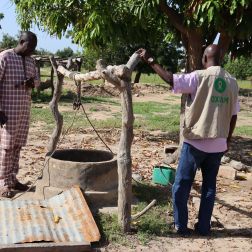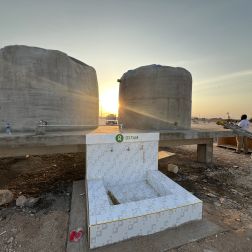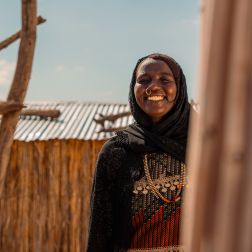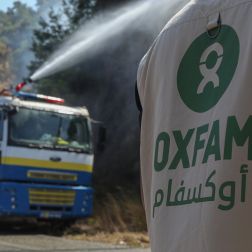- 5 mins read time
- Published: 28th October 2022
A Global Perspective on Accommodating Refugees

Since February we have been confronted with difficult images of people in Ukraine, victims of devastating violence, and those fleeing the violence. Irish people and the Irish Government have shown commendable solidarity with the people of Ukraine and the other people around the world fleeing war and persecution in the last six months.
The intimacy of seeing people’s everyday lives bundled into suitcases has brought home the importance of the right to refuge, the right to cross a border to seek international protection. When we imagine what would happen if those people holding in one hand a bag and in the other the hand of a family member, having struggled on to a train and arrived at the border of the EU had not been allowed to cross that border to safety, the importance of the 1951 Refugee Convention and it’s 1967 Protocol that together define and lay out the rights of refugees cannot be overstated.
Everyone has the right to look for international protection and a person qualifies for international protection if they can demonstrate that if returned to their country of origin they would be at risk of persecution, torture, or other inhumane treatment. Asylum is given to a person who can prove that they would be persecuted on the basis of their race, religion, nationality, political opinion (or a political opinion someone thinks they have), or the fact that they belong to a “particular social group.” A person can get protection if they are fleeing conflict but also inhumane treatment on more individual grounds. For example, a person could flee a country considered generally ‘safe’ as there is no active conflict but not safe for them because of their sexuality, religion or political beliefs. Whether fleeing war or individual persecution the right to apply for protection is equal. As the Irish government works to source accommodation for people who have come to Ireland looking for protection, whether applying for Temporary Protection as they flee Ukraine, or applying for international protection it is worth bearing in mind their Equal Right to Refuge.
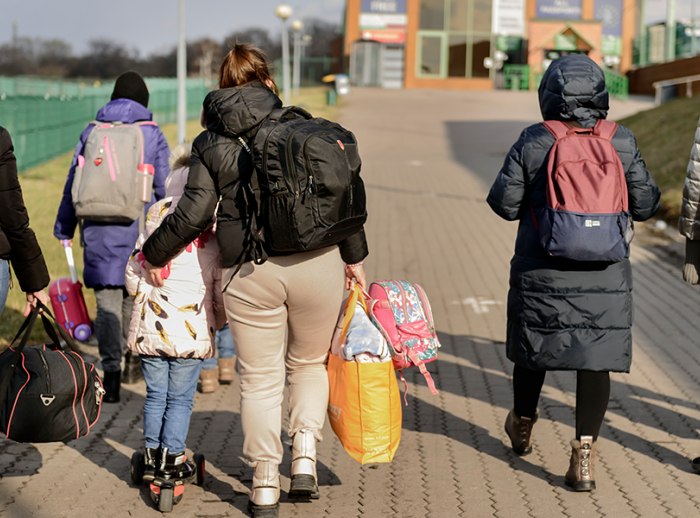
The 1951 Refugee Convention was written in the aftermath of the Second World War, an effort to make sure that people would be able to flee when home was no longer safe. Unfortunately, people continue to need to flee when home is no longer safe. Most people (60%) who are forced to move stay within the country, they are ‘internally displaced people’ (IDP). At the end of 2021, Syria, Colombia, the Democratic Republic of the Congo, Yemen, Ethiopia and Afghanistan continued to host the largest IDP populations in the world.
Of those people forced to flee who do cross into a different country, the overwhelming majority, 74% of the world’s refugees are hosted by low- and middle-income countries. The least developed countries in the world provide protection to 22% of people who have fled. At the end of September, Uganda was hosting over 1.5 million refugees, according to the UNHCR. That means that 1 in 47 people in Uganda is a refugee. Rich countries need to play a fairer role in sharing the responsibility for hosting refugees. People will need to flee to EU countries, including Ireland, and so we must be prepared to live up to our responsibilities under international law and plan for providing accommodation for people fleeing. The need for accommodation for people who have fled to Ireland must be part of an overarching programme for addressing the housing crisis in Ireland.
Oxfam Ireland recognises the challenges that the Irish government faces in sourcing accommodation during the housing crisis. At the same time, it is important to address the housing crisis for everybody living in Ireland. The fact that as one of the wealthiest countries in the world Ireland is in such a housing crisis, points to the need for change in our economy. Oxfam Ireland has recommended such changes including ways to raise revenue that could be invested in social and affordable housing – wealth tax and windfall tax.
An Irish wealth tax and a broad-based windfall tax
The introduction of an Irish wealth tax as well as a broad-based windfall tax across all industries generating extreme excess profits, not just the energy sector, could generate billions in new revenue.
A wealth tax of 1.5% on wealth over €5 million and 2% above net-wealth of €50 million would generate €5 billion. In addition to a wealth tax, Oxfam Ireland proposes a broad windfall tax on the excess profits of companies in all sectors of the economy, not just the energy sector, that are making record profits from the conditions created by the pandemic and the crises we are in. Corporations and the billionaire dynasties who control so much of our food system are seeing their profits soar. Billionaires involved in the food and agribusiness sector globally have seen their collective wealth increase by $382bn (45%) over the past two years. Moreover, the nine Irish companies on the Forbes 2000 list, which include companies from the agri-food industry and tech sectors, record excess profits of €2 billion Oxfam Ireland propose that the windfall tax would be levied on excess profits at an appropriate rate between 50%-90%. Some European countries are already leading the way, for example, Greece with a rate of 90 per cent; and Spain, which is planning to capture excess profits made by banks. Remember, the rate for the last major windfall tax introduced in Ireland, on windfall gains from rezoning, was set at 80% in 2010.
A better planned system
At the moment, the Irish government is struggling to find accommodation but in one of the richest countries in the world there is no reason not to have a better planned accommodation system for international protection applicants. Oxfam echo the calls made by The Irish Human Rights and Equality Commission for a system "which is not on a permanent emergency footing" and the Irish Refugee Council’s assertion that a "whole of Government approach" is needed. At this moment, it is challenging to find accommodation for everybody and it is a good time to also think about the broader context. Ireland has not only a legal but also an ethical obligation to plan accommodation for everybody, including refugees given the critical importance of the right to refuge and the fact that the least resourced countries in the world are hosting the most refugees.
